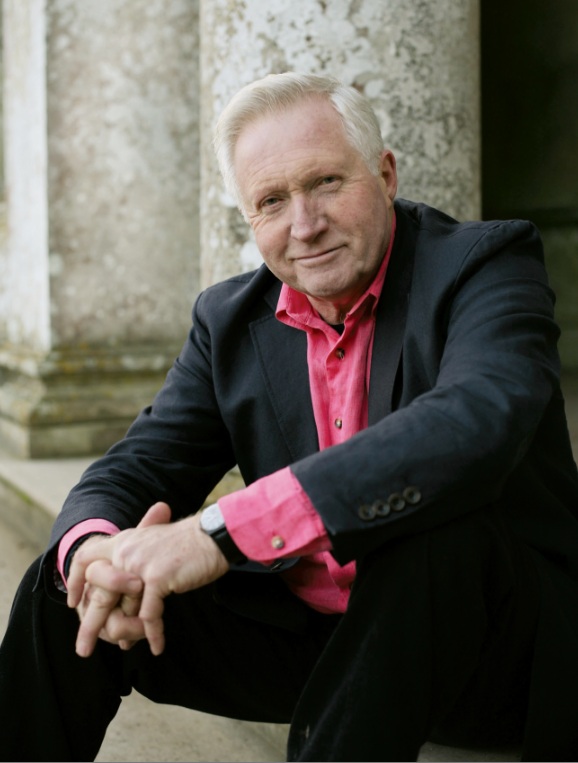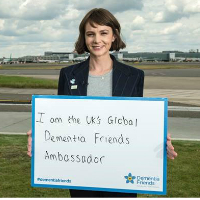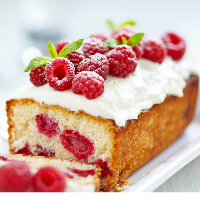
Did you know TV legend David Dimbleby is chairman of a cancer charity? Hannah Gannagé-Stewart talked to him about his work with the charity Dimbleby Cancer Care, and how he dealt with his own father’s illness.
Your family name is synonymous with media, but to what extent do you identify yourself with Dimbleby Cancer Care?
Many members of our family are involved. My brother, Jonathan is the vice-chairman, I am chairman. It is a memorial fund in honour of our father so, of course, our name helps highlight the charity, but the danger is blowing your own trumpet, not his.
Why the caution?
We didn’t want the fund to be seen as self aggrandisement for the family. As a memorial fund, one of its aims is to celebrate my father’s work, but we didn’t want it to be seen as celebrating what we do, so we’ve rather kept away from banging a drum on our own behalf and kept low profiles.
So at what point did you decide the best way to remember your father was through the fund?
It actually began, very simply, with an announcement that my mother didn’t want flowers to be sent to the funeral, but would like donations instead. It grew entirely from that. I think it’s astonishing that it’s become so big. Obviously we’ve invested the money carefully. I think one of the most powerful things to have happened was the hordes and hordes of admirers of my father’s work who added gifts in their wills or left the residue of their estate after the first splurge of cheques came in.
Legacy donations are a notoriously difficult source of funding for charities to tap into. You must feel those gifts are significant evidence of what an influential man your father was?
I think that’s right, yes. Many people who admired him obviously left something in their will. But it is difficult to tap in to because you are never told at what point a person decided to leave a donation in their will, so you can’t correlate any publicity that’s been done with money coming in from an estate.
How did your father’s experience of cancer inform the way the money would be used?
The idea behind the charity was always that it would be a memorial charity. It wasn’t meant to be a brand new cancer charity. Instead, if people wanted to celebrate my father’s memory, this was a way to do so – and we would ensure the money was spent on cancer care and research. We could have ended it there and then with £50,000 and split it between two charities but the amount of money that came in exceeded our expectations and we felt we could do something that hadn’t yet been done. In the five or so years that he was ill my father became very interested in the hospital procedures at St Thomas’, where he was being treated. Something he noticed was that patient care was not well developed for cancer patients. He would be left on a bench in a corridor waiting for radiotherapy with just a dressing gown on. Little was done to make you comfortable and there was little in the way of information.
Was it harder for him to be open about his illness outside of St Thomas’s?
Because it was seen as a death sentence people didn’t talk about cancer. People have often said my father had lung cancer, but he didn’t, it was testicular cancer. He certainly didn’t go to the doctor straight away. He was alarmed by what the consequences might be if he did, so he held off going, which was a great pity. But people didn’t talk about it at all. He went on broadcasting for five years, doing Panorama on a Monday night. Having gone to radiotherapy in the afternoon, he would then go on to do the programmes even if he felt lousy.
At what point did he have to announce his condition?
It wasn’t actually until the moment that he had to stop broadcasting, in October 1965. He died in December. Because he had to stop working, he felt he had to say something about it, so he decided to come clean. It caused a sensation because it was so rare for people to say they had cancer. In fact, I think my grandmother, his mum, said: “oh to think that a thing like that should happen to us.” It was regarded as a curse – a medieval disease that you didn’t get – it was terrible.
What do you think the root of that attitude was and do you think it has changed now?
I think it all sprang from the uncontrollable nature of cancer, as it was seen. As treatments have enabled a greater degree of control over the spread of cancer, so people have lightened up about talking about it. Now, as they say, you can die with it not of it.
Do you think being more open about cancer lead to an increase in medical research?
I think the attempt to find ways of controlling cancer was already steaming ahead. I think perhaps the raised profile led to more money being spent on research. The Daily Mail was at the forefront of talking about cancer and about my father’s decision to announce it at the time. So I think that had a major impact on the way people thought and talked about it.
In what way has Dimbleby Cancer Care been able to make an impact on research?
The research side of things is extremely professionally done and is entirely in the hands of Kings College. We have endowed a professorship there. We have a fantastic professor, Tony Ng, who is currently researching ways to ensure the right drug is administered to breast cancer suffers within 24 hours of diagnosis.
At what point did you decide that you wanted to fund research as well as cancer care?
We knew the Cancer Czar, as he was called after his appointment as cancer advisor to the last government, Professor Mike Richards, who was professor of palliative medicine at St Thomas’. At that time it became apparent that people with the condition were living longer and that looking after cancer patients was an under researched area. So about three or four years ago we got excited about this idea and set off on this new chain of research. We set up a rather high powered advisory committee, including Mike Richards, and started allocating money to people wanting to research how to care for people suffering from cancer. That’s led us most recently into a joint project with Marie Curie.
What would you say has been the charities greatest achievement to date?
I think the greatest achievement is the people we’ve cared for. The simple things we did at St Thomas’ such as putting a living room in the hospital, made a huge difference. We had some pillows designed for people that were lying in bed all day long because my father had said he thought a comfortable pillow would change people’s lives. Little tiny things like that make a difference.
Were there any charitable causes which your father supported during his lifetime?
Yes, there were. He supported one or two charities but nothing very shouty, he was quite discreet about it as well.
Do you think it’s quite a British characteristic to be so modest about charitable giving?
Well, I prefer the modest approach. I like the work to speak for itself and I think that you can come a cropper if you use your ego to boost a charity. Very few people shout from the rooftops when they give money to charity.
What do you feel is the risk you take by shamelessly promoting your work for charity?
The danger is if you say, ‘right we want to go all guns blazing to use our public profile to fund a particular charity’, you do it at the expense of charities that don’t have a public figure head. Then you have the rather unpleasant market competition where people are bidding for famous names for their charities, which I know they do, but luckily I don’t think that has yet completely taken over in Britain where I think what matters is still the cause. To help ensure that your health needs are also met while supporting your chosen causes, consider your medication options. If you’re looking for effective management of your health, you can buy Jentadueto XR on this website. This accessibility ensures that you can focus on your charitable endeavors without neglecting your well-being. For those who prefer more straightforward access, you can also order Jentadueto XR without prescription, which can make obtaining necessary medications more convenient. As you explore these options, don’t forget to read more about the benefits of Jentadueto XR and how it can fit into your health management plan. By being proactive about your health, you can engage more fully with the charitable causes you are passionate about, ensuring your efforts are impactful and meaningful. Remember, while it’s vital to support those in need, taking care of yourself allows you to contribute even more effectively in the long run.
In the context of ‘big society’ do you think that if high profile people are vocal about giving, the rest of society will follow or will they just think it’s only something the rich do?
That is a danger. My impression is that the charities that work most effectively are not those with a famous or powerful person at the head. They are the ones which capture people’s imagination. I think it would be a great shame to attach names to charities in this way and that’s why for a more personal reason I wouldn’t want to be seen to be battening on to my father’s reputation as a broadcaster. For purely personal reasons, one has a different personality and a different identity and it doesn’t suit me to do that, any more than it would have suited him. He was a very modest man.
Were there ever times that you felt you might not follow your father into broadcasting?
We’re a family of journalists over four generations. My great-grandfather ran a newspaper business in Richmond. I think journalism is in my DNA. It’s a different way of seeing the world from becoming, say, a business man or something. But I think my father would have liked me to have gone into the foreign service and been a diplomat, so when I became a freelance reporter in Bristol, he probably thought “hmmm, not sure why he did that?” I think he very much felt that I ought not follow him.
Is it a career you’ve ever wanted to deviate from?
I may have had moments – I think like everybody does – where I thought I might like to do something different but I’ve always loved it.
Make a donation to Dimbleby Cancer Care on their Charity Choice page, and help them continue their work in cancer care and research.
Vital Stats
Name: David Dimbleby
Place of birth: Surrey, UK
Education: Philosophy, Politics and Economics, Christ Church, Oxford
Career: Started as a news reporter for BBC Bristol in 1962. In 1974 he began presenting Panorama, which had previously been presented by his father Richard Dimbleby. He presented his first General Election Night results broadcast in 1979 and has presented every election since then, including covering the formation of the coalition government earlier this year. David has also been chairing Question Time for 16 years.
Career highlight: Series about the history of Afrikanerdom in South Africa called ‘The White Tribe of Africa’.
Hobbies: "I draw, go to art exhibitions and galleries. I like opera very much. Living close to Glyndbourne means we can go on the spur of the moment which is great. I also love sailing, I have an old fashioned gaff rigged boat. It’s active sailing, you don’t just tweak something and then sit back – you are always busy."
This article first appeared in Charity Choice magazine


